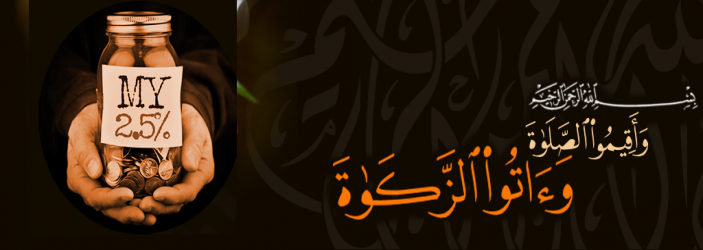Search

India is forging ahead as one of fastest economy of the world with annual GDP growth of 7.5%. In another 10-20 years’ time, it will emerge as the leading superpower of the world. The foreign powers envy at the success of Indians in computers, science and technology. In this fast evolving situation, what is the role of Indian Muslims if we ask, we have no answer. Everyone in the country has gone ahead, whereas Muslim is left behind – far behind in the race. What’s wrong? What was lacking – time, money, energy, skill? Was it opposite wind which hindered us? Or was it our complacency?
Basically, Allah does not change the condition of the people, unless they want to make the change. One of the best instrument available to the community for removal of its backwardness is the instrument of zakat. However, there is no effective utilization of this instrument.
Salaat and Zakaat go hand in hand. In the Holy Quran, the two duties Salaat and Zakaat are often mentioned side by side at number of places. Of all the duties i.e. Namaz, Roza, Zakat and Hajj, the most neglected duty is zakat. India is a home to almost 20 crores Muslims. Considering this aspect, the zakat liability can be estimated to be at least Rs. 20,000 crores. Unfortunately, there is no a single institution which can claim zakat collection of Rs. 100 crores. What are the reasons for such a huge default in Zakat system? Let us find the reasons.
Problems on Collection Side
Therefore, the easiest option for an ordinary Muslim is to pay the zakat amount to Moulvi of a Madrasa who approaches him for collection. He hands over a small amount – may be Rs. 1000, Rs. 5000/- . With meagre payments, he thinks he has discharged his liability in full.
Problems on Disbursement Side
With these rampant defects in the system, zakat compliance level in India is very low. Most of the rich persons do not pay off their full zakat liability. Even if they do, they do not disburse it to the right deserving persons. They make the payment on individual basis. With the result, the benefits of zakat system do not percolate to the poor and needy of the community. These serious defects in collection and disbursement sides are the main reasons for failure of zakat system in India.
What is the Solution?
There are number of ways to find a solution. The solution should provide for removal of each and every defect in the collection side and disbursement side. The entire process needs to be fully integrated with full cooperation of all stakeholders. A few suggestions are worth considering.
The modern technology is of great help in carrying forward the concept of institutionalization of zakat system with full system of checks and balances and involvement of Imams, Aalims, scholars and computer professional experts. There is a need to establish a Zakat Markaz (zakat centre) in mosques. Two volunteers – young, educated, qualified professionals, residing in the same locality can effectively liaise with the Imam to carry forward the objective of zakat markaz.
In institutionalization of zakat system, Imams can play a vital role in evolving a zakat-compliant society. The volunteers can distribute the zakat claim forms. These forms can be scrutinized at Zakat Markaz with the help of Imam. Muezzin can give a helping hand. In addition to the normal duty of performance of Salat, Imams can take part in performance of another duty and that will be enormous job enrichment for which they would be entitled to some compensation – being part of “Aamileen-e-alaiha”. Another key responsibility of the Imams would be to guide the zakat givers – to clarify as to how to determine zakat liability of traders, merchants, shareholders, salaried class persons and how to determine zakat liability on different class of assets – be it gold and silver, shares and bonds, stock in trade, Mutual Funds, bitcoins, building and property, crops, livestock etc. The collections of zakat markaz will improve a lot if this quality education is imparted to all the rich persons above nisab level. With high sense of integrity and honesty and in-built checks and balances of the institution, the element of trust will improve in institutionalized system of zakat. All the records of zakat payers and zakat receivers can be collectively maintained at central level in electronic format by the zakat institution. This will be helpful in tracking and analyzing the collection and disbursement cycle.
Zakat institution will have to organize multiple programmes for socio-economic and educational upliftment of the community – children, youth, women and old persons. Special counselling sessions for youth to improve their career will have to be organized with the involvement of specialists in the field of sociology, psychology, economics, law, IT, etc. Apart from helping the poor and needy, the zakat institution can extend help during calamities to the affected persons or displaced persons. In all such disasters, zakat volunteers would be of great relief. This would be one of the key responsibility of the zakat institution.
A mass awareness programme is required to be undertaken in each city and town in order to mobilise the institutionalized based zakat system. The collection can be as high as Rs. 20,000 crores in India. This can bring significant improvement to the community.
Regards,
Team AMP
Inform your friends about AMP so that they can also be a part of this great platform.
Keep yourself updated about all the AMP Activities so that you can contribute wherever you can.
Ration Kits Distribution during #Covid
ETV Bharat - 11 May, 2021
AMP Provides Education Scholarships for 100 Covid-19 Orphans
The Times of India - 1 Sep, 2021
Charity in Ramzan, goes online to uplift the needy
The Times of India - 18 Mar, 2024
* Both fields are required.
